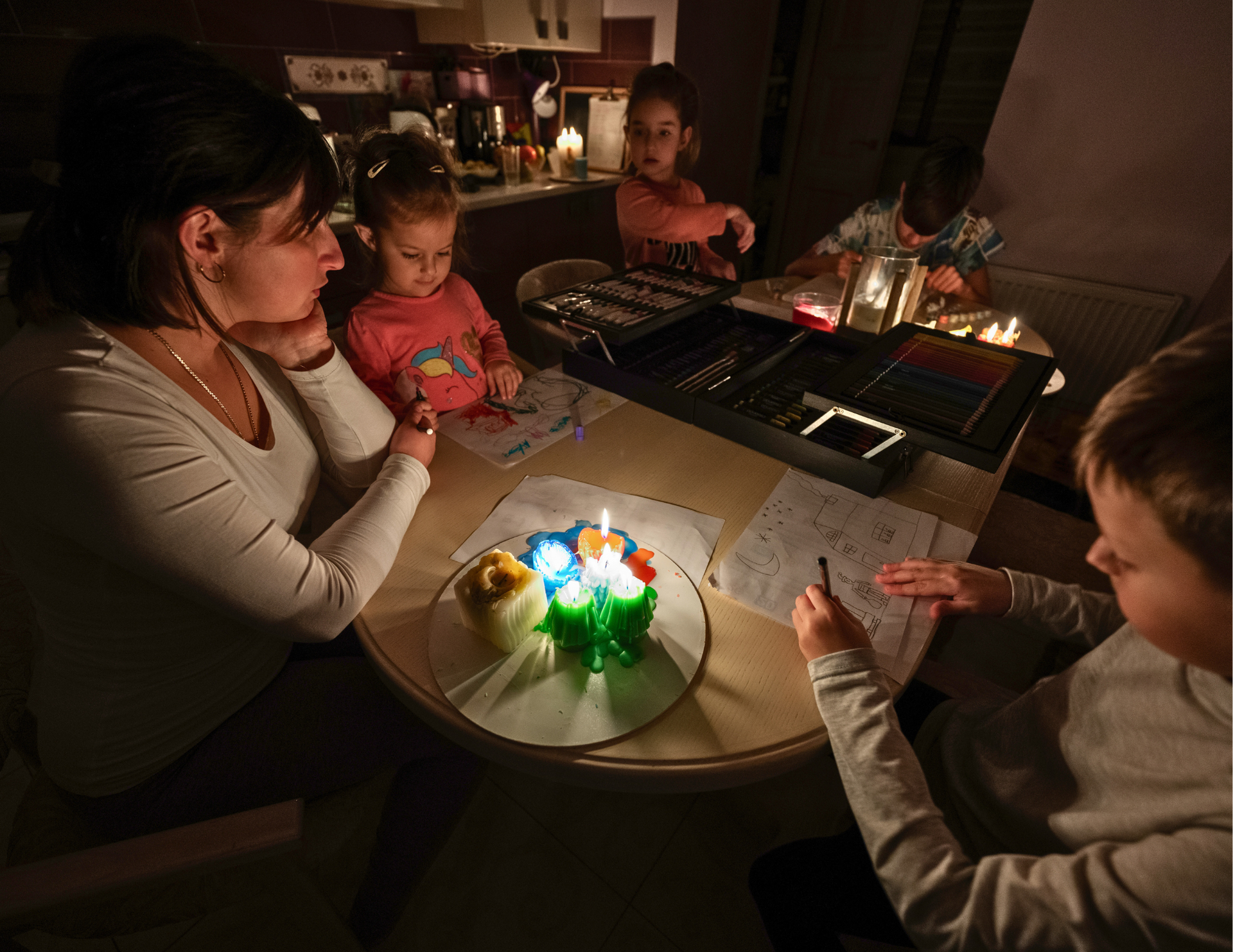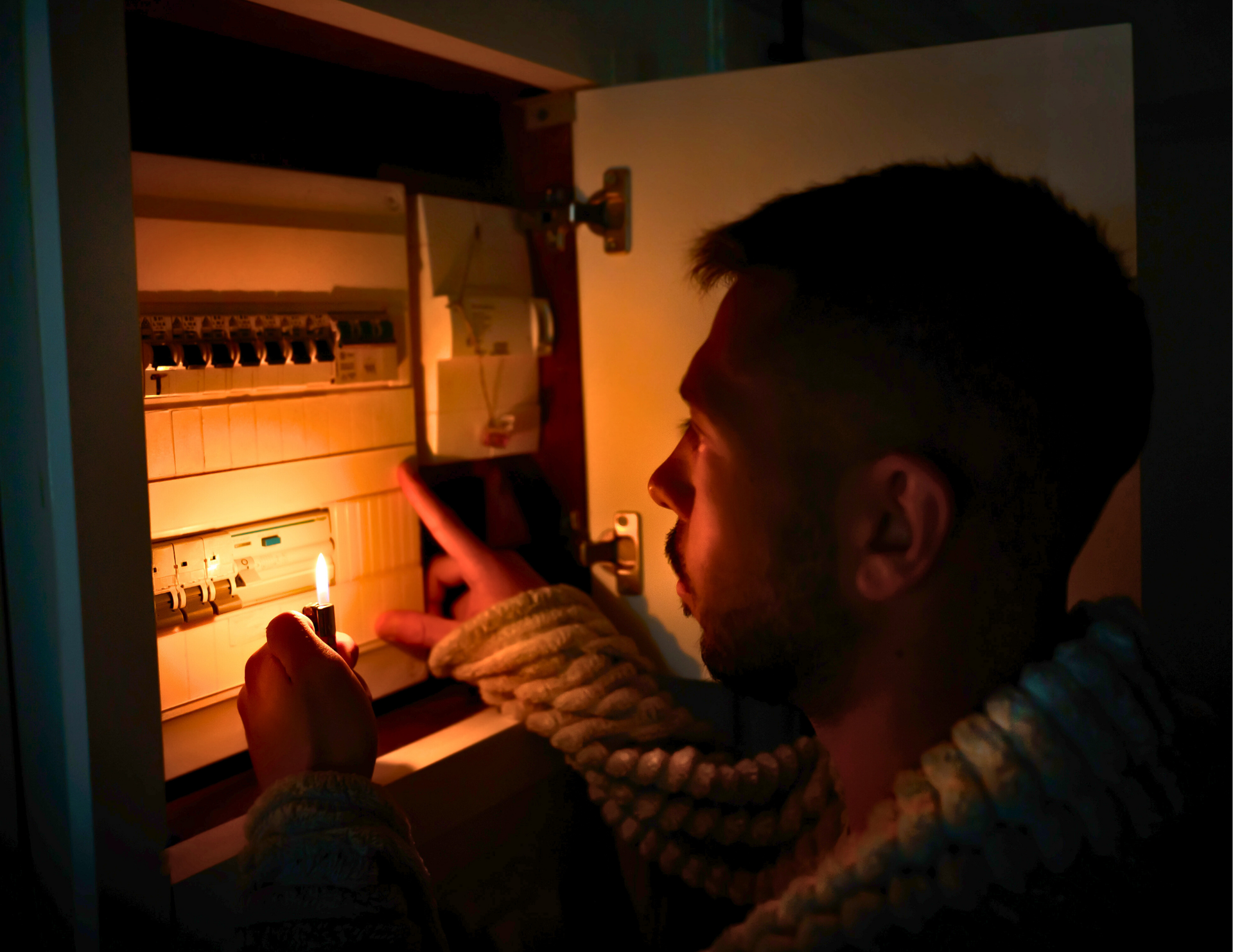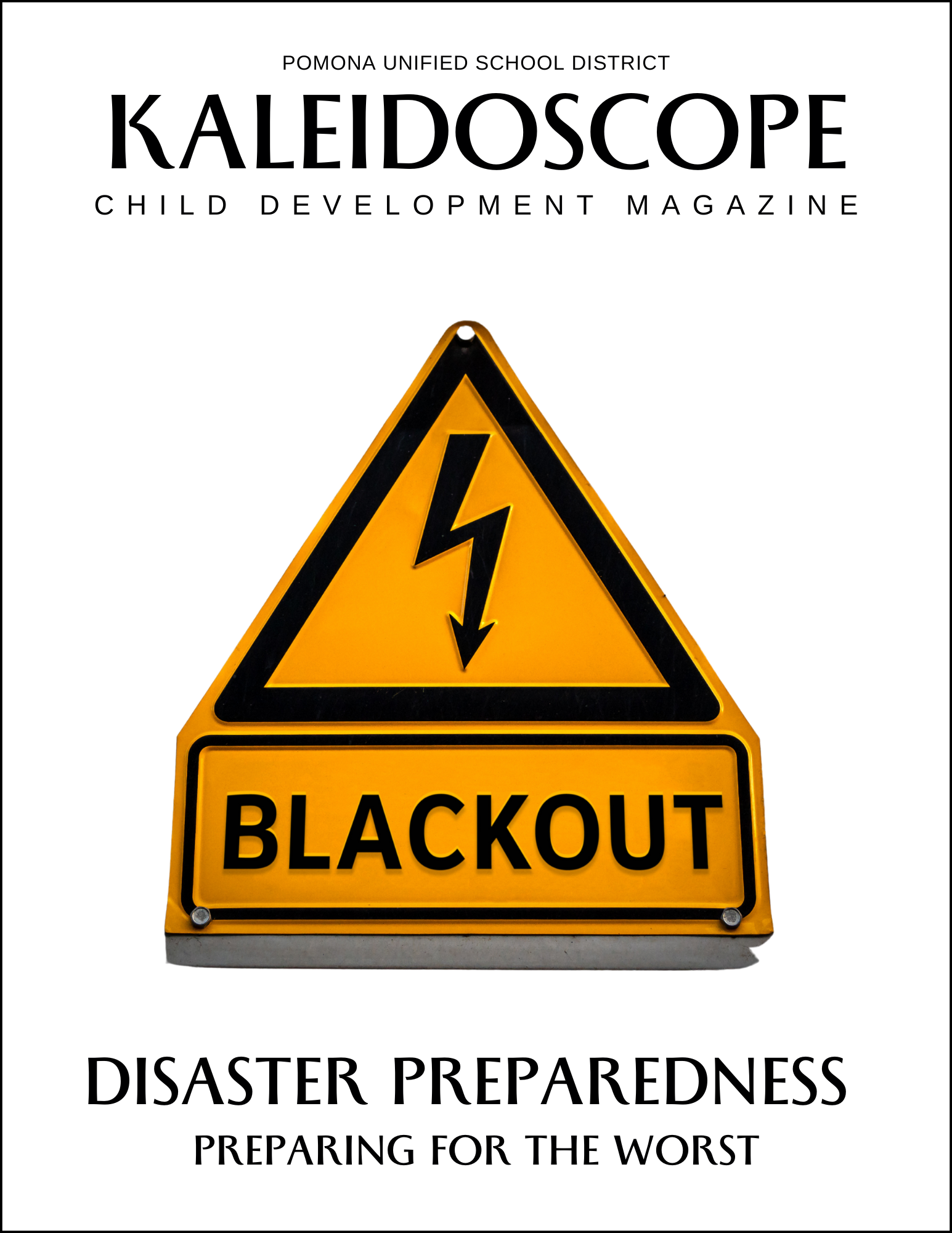Articles & Training Photos
ARTICLES
Article: The Day the Lights Went Out
(Inspired by real-life events)
Ms. Rosa had run “Little Suns Child Care” from her home in San Bernardino for nearly a decade. Every day, a small group of toddlers arrived just after dawn, filling her living room with laughter, sticky fingers, and song.
On a hot Wednesday afternoon in August, the wind howled through the canyon, carrying the dry scent of fire. The sky dimmed with smoke, and just as Ms. Rosa was refilling sippy cups, the lights flickered—and went out.
“Ms. Rosa?” a small voice called. “Why did the light go night-night?” She paused. No power. No cell service. No fans. The fridge hummed to a stop. Her emergency app—offline.
She looked out the window: the hillside shimmered with heat, a distant plume of smoke rising. The fire wasn't close, but it was serious. She had six children under her care, all under five years old. Some were on medication, others prone to panic.
She took a breath.
Then she got to work.
From the hallway closet, she pulled out a crate marked "Emergency Kit." It was something she'd put together after attending a county preparedness workshop last year—just in case. Inside: lanterns, coloring books, snacks, baby wipes, even a hand-crank radio.
She lit the room with battery-powered lanterns. The children gasped in delight, thinking it was a special game. They sat in a circle. She led them in a story: “Once upon a time, the sun went out—but the little suns stayed bright…” They laughed, sang songs, and clapped. No one cried. In the kitchen, she moved perishable items to a cooler, kept the fridge closed, and checked on medications. She turned the radio’s crank—static… then a voice. The fire was contained. The outage might last through the night.
Parents started arriving one by one, navigating darkened streets to pick up their children. Each one left teary-eyed and grateful. They saw their child smiling—safe, calm, fed. At sunset, Ms. Rosa sat in the glow of the lanterns with her last child, waiting for their parent. She was tired, hungry, and covered in applesauce. But her heart was steady.
That night, long after the final child had gone home, Ms. Rosa wrote a note to herself in her binder:
“The lights went out, but we didn’t. We were ready.”
And she was. She wasn’t just a caregiver—she was a lighthouse.
Let Ms. Rosa’s story be a reminder that preparation isn’t just about batteries and canned food—it’s about courage, care, and calm in the face of the unexpected.
Article: Preparing for Multi-Day Blackouts

Living in Southern California offers many benefits—but it also comes with the risk of natural disasters. Residents of San Bernardino and Los Angeles Counties are familiar with wildfires, earthquakes, and floods. These events can lead to prolonged blackouts, sometimes lasting for days. Whether you're a parent, caregiver, or run a child care facility, it's crucial to be ready when the power goes out. This guide is designed to help families and child care providers prepare for and respond to extended blackouts safely and effectively.
1. Understand the Risks. Power outages can happen suddenly and may:
- Disrupt communication and access to emergency services
- Affect heating, air conditioning, and refrigeration
- Interrupt medical equipment or electronic care devices
- Compromise food safety and water availability
- Preparing in advance reduces panic and ensures children's safety and comfort.
2. Create a Power Outage Emergency Plan For Families and Child Care Providers:
- Designate a meeting location in case evacuation is necessary.
- Keep a printed list of emergency contacts (family, utility company, child care licensing, poison control).
- Identify a back-up location to temporarily move children to if your facility or home becomes unsafe.
- Know how to manually operate electric-powered doors, gates, and garage openers.
3. Prepare a kit to last at least 5–7 days. Include:
- Flashlights (no candles) and extra batteries
- Battery-powered or hand-crank radio
- Portable chargers or solar-powered chargers for phones
- First-aid kit and necessary medications
Food & Water:
- One gallon of water per person per day
- Non-perishable, ready-to-eat food (baby formula, snacks for children, manual can opener)
- Pet food and supplies if applicable
For Child Care Facilities:
- Diapers, wipes, formula, and comfort items (blankets, toys)
- Emergency contact cards for each child
- Emergency documents: allergies, medications, custody info
4. Prepare Your Home or Facility
- Install smoke and carbon monoxide detectors with battery backups.
- Freeze containers of water to help keep food cold longer in the fridge/freezer.
- Consider investing in a backup generator (always use outdoors, away from windows and vents).
- Secure heavy furniture and appliances to reduce risk during earthquakes.
5. Maintain Communication
- Sign up for local emergency alerts (e.g., Ready SB County Alerts or NotifyLA).
- Keep a landline or battery-powered phone that doesn’t rely on electricity or Wi-Fi.
- Coordinate a communication plan with parents if you are a provider—how and when will updates be shared?
6. Stay Safe During the Outage
- Use flashlights for light—avoid candles due to fire risk.
- Avoid opening refrigerators/freezers to keep food cold.
- Turn off electronics and major appliances to prevent a surge when power returns.
- Be cautious of carbon monoxide—never use generators, camp stoves, or charcoal grills indoors.
7. Caring for Children During an Outage
Children can sense stress. Help them feel safe by:- Maintaining a calm and reassuring tone
- Keeping routines as normal as possible
- Engaging them with quiet activities (books, crafts, board games)
- Providing emotional support and explanations suited to their age
8. After the Power Returns
- Check perishable food for spoilage—when in doubt, throw it out.
- Restock used supplies immediately.
- Debrief with your family or staff—what went well? What can be improved?
9. Local Resources
For San Bernardino:- San Bernardino County Office of Emergency Services: https://www.sbcounty.gov/oes
- 211 San Bernardino: Dial 2-1-1 or visit https://inlandsocaluw.org/211
- Los Angeles Emergency Management Department: https://emergency.lacity.gov
- 211 LA County: Dial 2-1-1 or visit https://211la.org
Conclusion, power outages are more than an inconvenience—they can be life-threatening if you're unprepared. For families and child care providers in Southern California, planning ahead is not optional; it's essential. By preparing now, you ensure the safety, well-being, and comfort of the children in your care when the lights go out.

